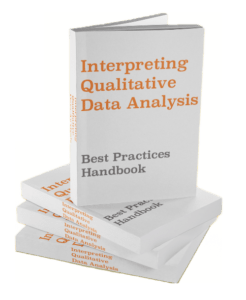What are you doing to optimize your chances of landing the job & pay you want?
This is the question successful students ask themselves early, and regretful students ask themselves late.
University ≠ Work
I liked university, but I use very little of what I learned there. Loads of studies have shown that companies find it “increasingly difficult to find people with the right skills for entry-level positions.”1 Graduates simply don’t learn “real” skills at school.
It’s not just the studies–most students find this out quickly after graduation. We’ve all seen the struggling job hunt posts on LinkedIn (or posted them ourselves).

If You’re Like I was…
If you’re like I was, you want to learn practical skills to get the job you want, at the pay you want, and feel happy with the role, but it feels like you need years to do so–the famous “years of experience” argument. It’s true, there are very few resources designed for practical skills acquisition.
So I built a tool to do so. It’s a tool that will prepare you with hands-on, real-world experience in either data and finance that hiring managers won’t be able to ignore.
Don’t Sweat it If You Didn’t Study Data or Finance
The tool isn’t just for tech and finance majors–we’ve helped students studying business administration, business analysis, hotel management, nursing, IT, and more. Over 35,000 people have begun learning at AnalystAnswers.com.
Before I explain the tool, let me provide some context.
Forget What You Learned in School
After a month of work, it was clear the only skills i could transfer from school were basic arithmetic, writing, and critical thinking. Unless you work in a specific domain like actuarial sciences, it will likely be the same for you (if you have a niche profession like an actuary, this site is not for you!)
And hiring managers know it. The AACU reported that less than half of hiring managers have a great deal of confidence in higher education, and that was down -16% from 2018 to 2020.
Real-World Skills Beat Grades 9 times out of 10
Out of school, I had a strong GPA, many extra-curriculars, and a Fulbright scholarship on my resume, but very few “practical” skills. I ended up landing a job in M&A because I had a personal asset the company needed, then I learned all the hard, practical skills on the job.
Fast forward to 1 year of experience, the discussion is different. Why? Because hiring managers know you’ve gone through the initial phase of learning practical skills in a real-world setting. In fact, practical skills obtained through real-world exposure are the #1 desired trait for managers hiring graduates — 90% of managers say so according to the AACU.
I wish I knew before… it would have helped me position myself.
So… Beat the Competition
So, what can you do to get practical skills?
You could get an internship. You’ll see how people behave in a corporate environment, and you’ll make some connections. The trouble is you could end up coffee running or doing the “valuable” work others don’t want to do (“grunt work”). It’s tough pitching what you “learned” through that process to a future employer.
You could take courses online, but they often end up being very similar to schoolwork, with very little real-world practice. I recently took a course on Coursera to learn about product pricing. I learned about demand curves, elasticity models, and price points. I even aced some quizzes…
…now ask me to apply that on the job, and it’s a whole other story. I need to apply it to a real-world scenario to make sense of the theory. Practical skills come by doing.
Don’t get me wrong, courses are useful, but they are just the starting point.
Exceeding Expectations
Remember, 90% of managers think practical skills obtained through real-world exposure are the #1 desired trait. Practical skills stand out. And I don’t mean being successful on an on-site test — I’m talking about communicating as if you were already on the team. If you make the interviewer feel like you already do what they need, you exceed expectations.
So, how are you going to get real-world experience before doing it?
It’s possible. Not easy, but possible with the right resources.
Feel Like I’m Yanking Your Chain?
I’m not, and I wish someone had told me this when I was applying for my first jobs.
Here it is: the best way to get real-world skills is by solving the exact same problems the future team solves. It’s as simple as that.
Know It & Show It
I push for candidates who know and show they have solved problems like mine over those with brand names on their CV. I recently promoted someone who with passion about INDEX+MATCH in Excel over a 4.0 GPA candidate who didn’t use arrow keys to navigate a spreadsheet. And it’s not just me.
Hiring Managers Don’t Always Know It, but They Always Do it
I don’t mean degrees aren’t important–they are. They tell managers that you have discipline and ambition. But exceeding expectations and landing the job you want is about relating. Managers don’t always know it, but they always push to hire candidates who understand the work–that they see have actually done the work successfully already.
Here’s the Secret: There Isn’t Much to Know
The crazy part of it all is that the skills you need to solve real problems are few. The hard part is finding the resources and practical work to learn them.
I wish someone had laid it out for me, and that’s why I founded AnalystAnswers.com. I spent 2 years building the tool and have helped over 35,000 people get on the right path to building these skills to get the jobs they want, at the pay they want, and be happy in an environment where they add real value.
Ready for the solution?


